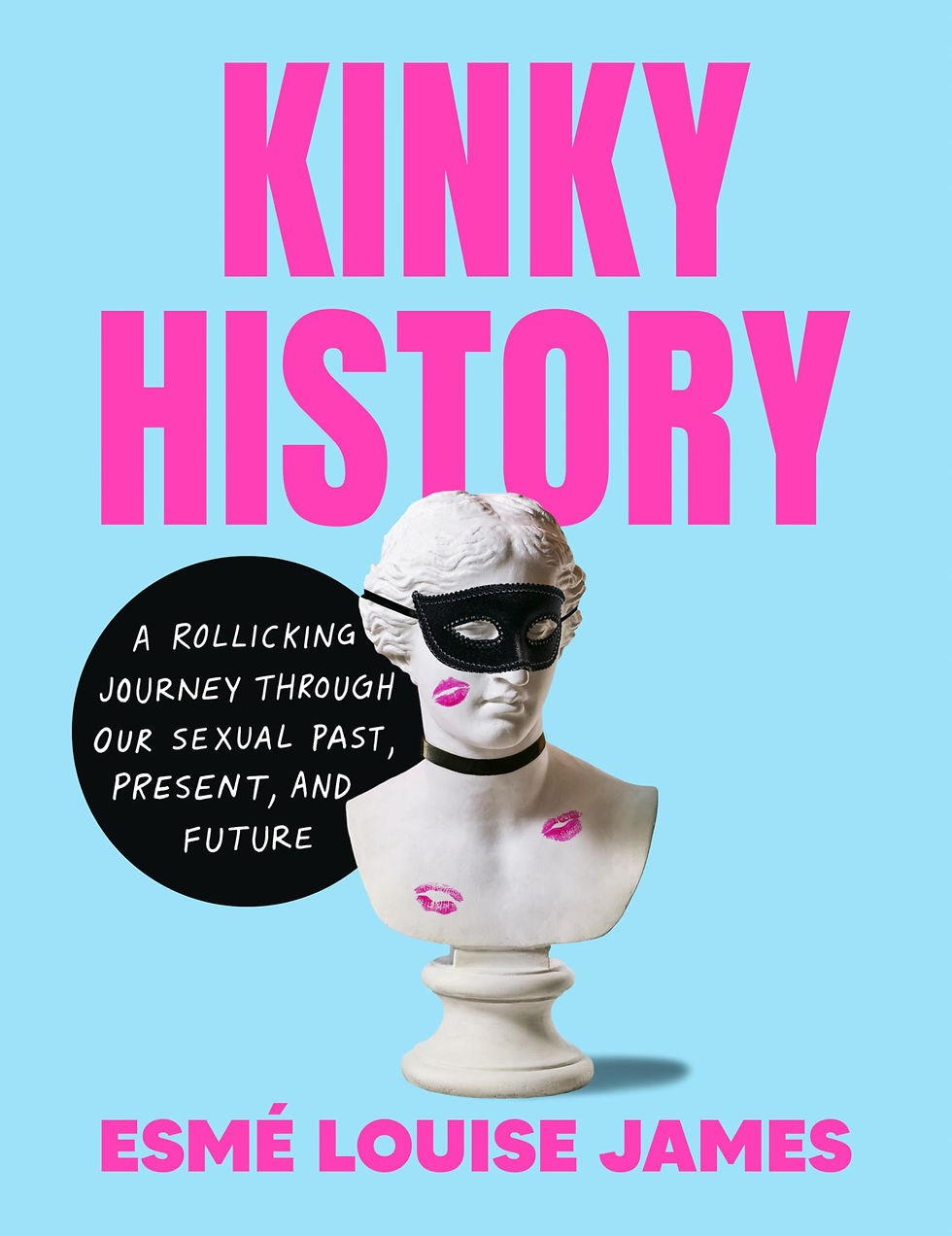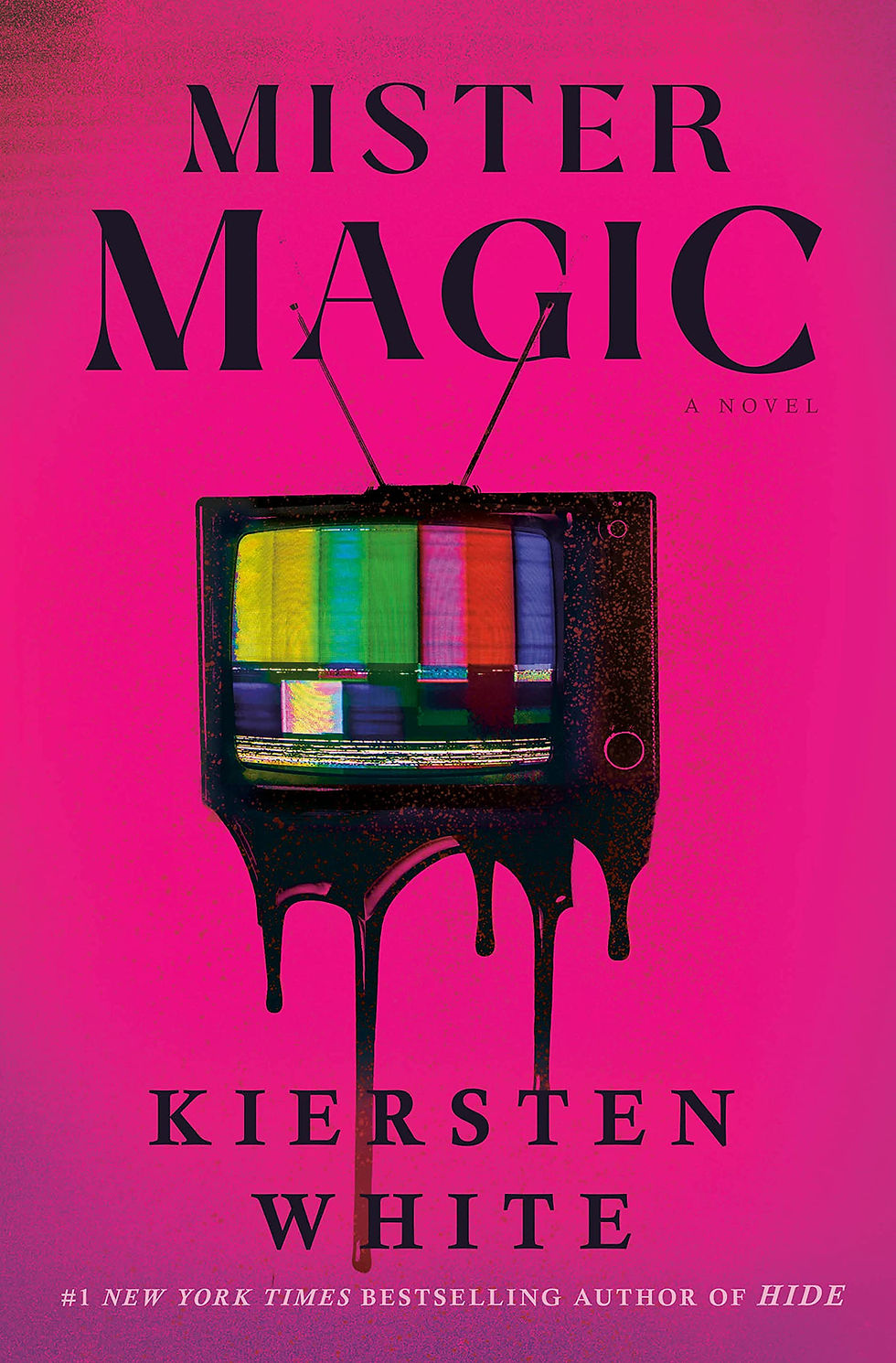Kinky History: A Rollicking Journey through Our Sexual Past, Present, and Future by Esme Louise James
- Jodie
- Aug 20, 2025
- 3 min read

Book Review
Title: Kinky History: A Rollicking Journey through Our Sexual Past, Present, and Future by Esme Louise James
Genre: Non-Fiction, Societal Issues, Relationships
Rating: 5 Stars
Esmé Louise James’s Kinky History is a captivating, bold, and delightfully irreverent exploration of human sexuality across time. What might have been a dry, academic treatment of sexual history becomes, in James’s hands, a rollicking, witty, and deeply engaging narrative. From the very beginning, she sets the tone for the book’s mission: “By refusing to let sex remain hidden by forces of secrecy and mystery, we take the power back. Sex is no longer an abstract construct which we fear to touch, but something that is tangible, bodily, and felt. The way that sex was always meant to be.” This statement not only frames the book’s purpose but also captures James’s insistence that sex should be examined openly, joyfully, and without shame.
One of the most compelling aspects of Kinky History is James’s ability to transform what began as her personal project into a collective cultural conversation. She reflects that “Kinky history was no longer just an output for my compulsive need to overshare. It was far bigger than me. It had become a community of curious minds.” This sense of shared discovery is present throughout the book, as James turns her readers into participants in a wider movement to destigmatize discussions about sexuality. In doing so, she combines academic rigor with an inviting, conversational style that makes even the most obscure or taboo historical details approachable.
The book is at its most powerful when James uncovers surprising or forgotten practices from the past and connects them to our present-day assumptions. Her discussion of the nineteenth-century Oneida Community, for example, is as hilarious as it is enlightening: “The Oneida Community… practiced ‘complex marriage’… all men and women were expected to have sexual relations… They also believed in… ‘male continence,’ in which men avoided orgasm during sex, as a means of contraception (I can hear Augustine rolling in his grave). Sex, denied the purpose of reproduction, served its own social purpose, allowing ‘the sexes to communicate and express affection for one another.’” By approaching this kind of material with both humor and historical sensitivity, James demonstrates how radically varied human sexual practices have been—and how many of today’s “taboo” subjects are, in fact, far from new.
Again and again, James challenges modern readers to reconsider what we believe to be shocking or radical. “How could the use of sex toys be seen as radical today if we were using them back in the prehistoric era? How could fetishes be so shocking if we were already idolizing feet back in Aristotle’s day?” she asks. Such questions highlight the central thrust of Kinky History: that sexual diversity is not an anomaly of the modern world but rather a continuous thread in the fabric of human history. By recontextualizing present-day practices within their historical roots, James normalizes them and encourages readers to see sexual expression as something enduring and profoundly human.
Stylistically, the book’s “raunchy dinner party” framing device gives it a lively and theatrical quality. By imagining historical figures gathered around a table, James creates a playful space for them to tell their stories and reveal their eccentricities. While some readers may find the conceit overextended at times, the device overall serves to maintain an atmosphere of fun and irreverence, ensuring that the narrative never lapses into dryness. Even the occasional overuse of euphemism or quip contributes to the sense that the reader is being entertained as much as they are being informed.
Ultimately, Kinky History succeeds in being both an educational resource and an act of cultural celebration. It reminds us that sexuality has always been diverse, dynamic, and creative—and that our attempts to hide or silence it are what is truly ahistorical. James’s work is a joyous reminder of the importance of curiosity and openness, one that leaves her readers more informed but also more connected to the long, messy, and exuberant story of human desire.
In short, Kinky History is an exceptional achievement: funny, insightful, and profoundly necessary. For its ability to blend scholarship with accessibility, history with humor, and irreverence with respect, the book earns a well-deserved five stars.
Buy it here:
Paperback/Hardcover: amazon.co.uk amazon.com
Kindle Edition: amazon.co.uk amazon.com




Comments